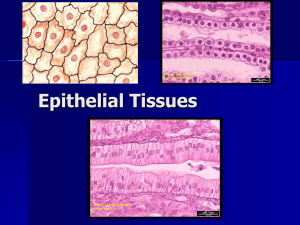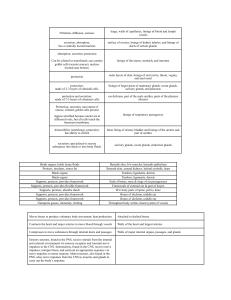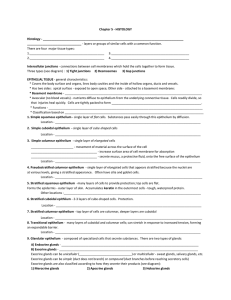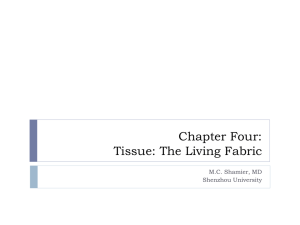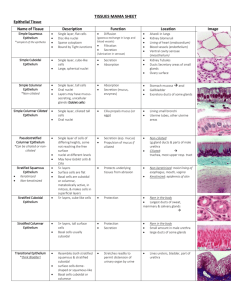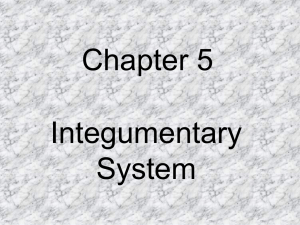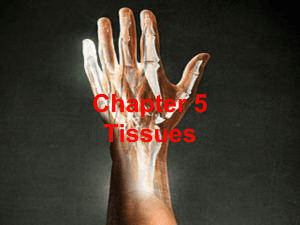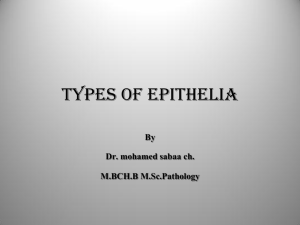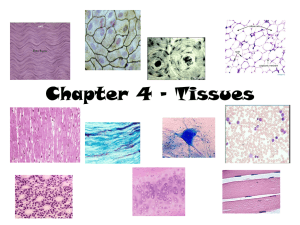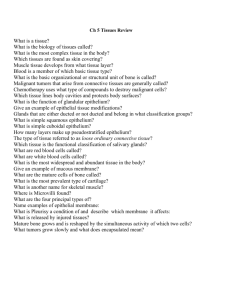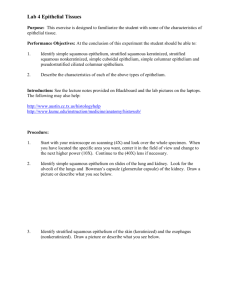BIO101 Pre-Quiz 3
advertisement
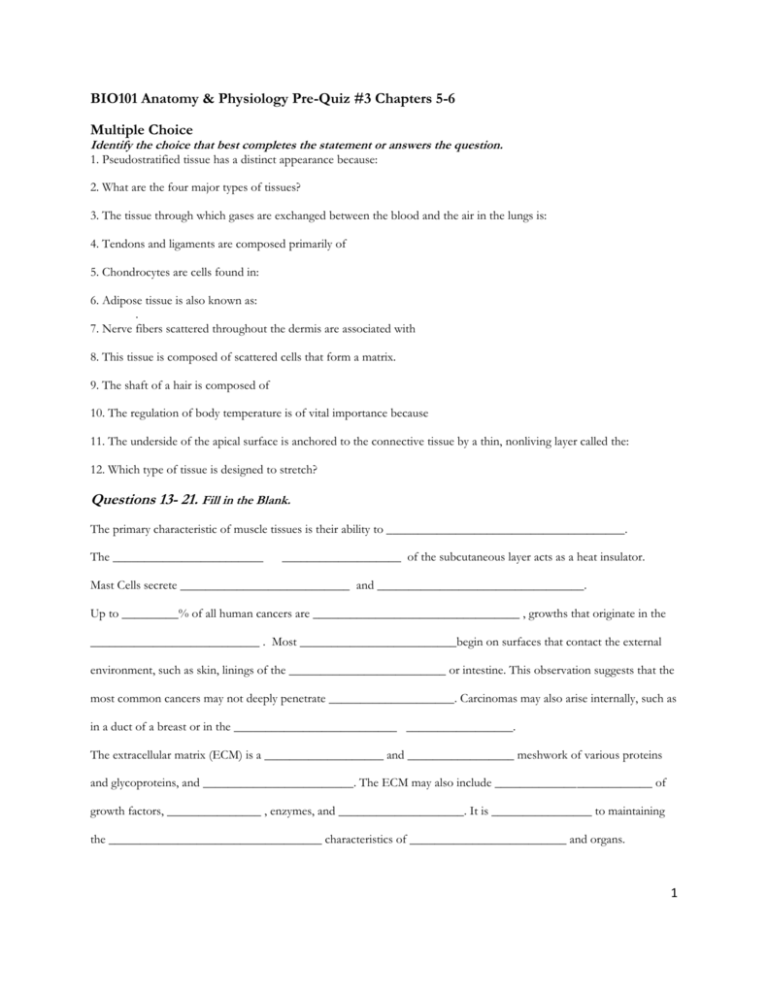
BIO101 Anatomy & Physiology Pre-Quiz #3 Chapters 5-6 Multiple Choice Identify the choice that best completes the statement or answers the question. 1. Pseudostratified tissue has a distinct appearance because: 2. What are the four major types of tissues? 3. The tissue through which gases are exchanged between the blood and the air in the lungs is: 4. Tendons and ligaments are composed primarily of 5. Chondrocytes are cells found in: 6. Adipose tissue is also known as: . 7. Nerve fibers scattered throughout the dermis are associated with 8. This tissue is composed of scattered cells that form a matrix. 9. The shaft of a hair is composed of 10. The regulation of body temperature is of vital importance because 11. The underside of the apical surface is anchored to the connective tissue by a thin, nonliving layer called the: 12. Which type of tissue is designed to stretch? Questions 13- 21. Fill in the Blank. The primary characteristic of muscle tissues is their ability to ______________________________________. The ________________________ ___________________ of the subcutaneous layer acts as a heat insulator. Mast Cells secrete ___________________________ and _________________________________. Up to _________% of all human cancers are _________________________________ , growths that originate in the ___________________________ . Most _________________________begin on surfaces that contact the external environment, such as skin, linings of the _________________________ or intestine. This observation suggests that the most common cancers may not deeply penetrate ____________________. Carcinomas may also arise internally, such as in a duct of a breast or in the __________________________ _________________. The extracellular matrix (ECM) is a ___________________ and _________________ meshwork of various proteins and glycoproteins, and ________________________. The ECM may also include _________________________ of growth factors, _______________ , enzymes, and ____________________. It is ________________ to maintaining the __________________________________ characteristics of _________________________ and organs. 1 Match the term to its definition or location: 22. a. _____ Collagenous tissue fibers d. Stretch easily. b. _____ Elastic tissue fibers e. Lend delicate support. c. _____ Reticular tissue fibers f. Hold structures together with great tensile strength. 22. a. _____ Epithelial e. Lacks blood vessels, readily divides, cells are tightly packed b. _____ Connective f. Transmit impulses for coordination, regulation, integration and sensory reception. c. _____ Muscle g. Bind, support, protect, fill spaces, store fat, produce blood cells d. _____ Nervous h. Able to contract in response to specific stimuli 23. a. _____ Merocrine glands e. Secretion is cellular product plus portions of the free ends of glandular cells pinched off during secretion b. _____ Apocrine glands f. Secretion is disintegrated entire cells filled with secretory products c. _____ Holocrine glands g. Secretion is fluid product released through cell membrane by exocytosis Questions 24/25: a. _____ Simple squamous epithelium k. Salivary glands, sweat glands, endocrine glands b. _____ Simple cuboidal epithelium l. Part of the male urethra and parts of the pharynx c. _____ Simple columnar epithelium m. Air sacs of the lungs, walls of capillaries, linings of blood and lymph vessels d. _____ Pseudostratified columnar epitheilium n. Linings of uterus, stomach, and intestines e. _____ Stratified squamous epithelium o. Inner lining of urinary bladder and linings of ureters and part of the urethra f. _____ Stratified cuboidal epithelium p. Linings of respiratory passages g ._____ Stratified columnar epithelium q. Surface of ovaries, linings of kidney tubules, and linings of ducts of certain glands. h. _____ Transitional epithelium r. Outer layer of skin, linings of oral cavity, throat, vagina, and anal canal. j. _____ Glandular epithelium s. Linings of larger ducts of mammary glands, sweat glands, salivary glands, and pancreas. 2
